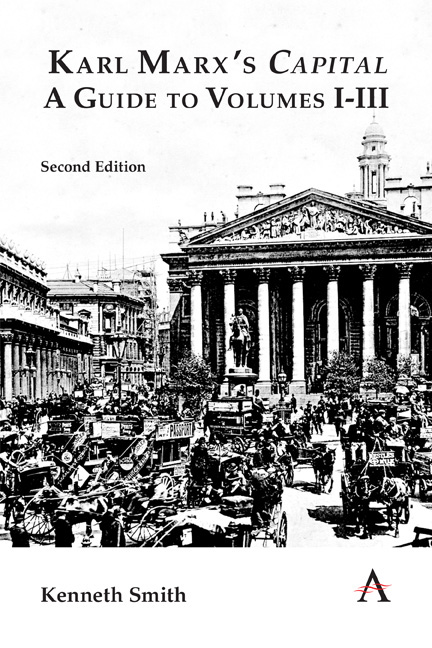Book contents
- Frontmatter
- Dedication
- Contents
- Preface to the Second Edition
- Introduction
- Part I The Development of the Capitalist Mode of Production
- Part II The Capitalist Mode of Production
- Part III The Underdevelopment of the Capitalist Mode of Production
- Part IV The Value Theory of Labour
- Conclusion to Part IV
- Conclusion
- Appendix: On Social Classes
- Notes
- Bibliography
- Index
4 - Primitive Accumulation in Capital, Vol. I, Part VIII, Ch. 26–33
Published online by Cambridge University Press: 17 April 2021
- Frontmatter
- Dedication
- Contents
- Preface to the Second Edition
- Introduction
- Part I The Development of the Capitalist Mode of Production
- Part II The Capitalist Mode of Production
- Part III The Underdevelopment of the Capitalist Mode of Production
- Part IV The Value Theory of Labour
- Conclusion to Part IV
- Conclusion
- Appendix: On Social Classes
- Notes
- Bibliography
- Index
Summary
The accumulation of capital, Marx argues, presupposes surplus value. We cannot accumulate unless we have something to accumulate with and this something must evidently be over and above (i.e. surplus to) what is necessary simply to reproduce the prevailing process of production on the same unchanging scale. However, the existence of surplus value presupposes the existence of capital, and the existence of capital presupposes accumulation. The whole thing, Marx argues, seems to turn in a vicious circle when viewed from the point of view of an already established capitalist mode of production (CMP) out of which we can only get by supposing some form of pre-capitalist or primitive accumulation (‘previous accumulation’ in Adam Smith's terminology), which takes place before the development of the CMP proper. As Marx says on this point:
This primitive accumulation plays in Political Economy about the same part as original sin in theology. Adam bit the apple, and thereupon sin fell on the human race. Its origin is supposed to be explained when it is told as an anecdote of the past. In times long gone by there were two sorts of people; one, the diligent, intelligent, and, above all, frugal elite; the other, lazy rascals, spending their substance, and more, in riotous living. The legend of theological original sin tells us certainly how man came to be condemned to eat his bread in the sweat of his brow ; but the history of economic original sin reveals to us that there are people to whom this is by no means essential. Never mind! Thus it came to pass that the former sort accumulated wealth, and the latter sort had at last nothing to sell except their own skins. And from this original sin dates the poverty of the great majority that, despite all its labour, has up to now nothing to sell but itself, and the wealth of the few that increases constantly although they have long ceased to work. Such insipid childishness is every day preached to us in the defence of property. (1974a, 667 [1976, 873–4])
- Type
- Chapter
- Information
- Karl Marx's 'Capital': A Guide to Volumes I-III , pp. 31 - 36Publisher: Anthem PressPrint publication year: 2021



